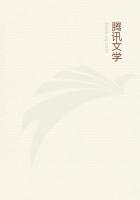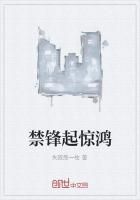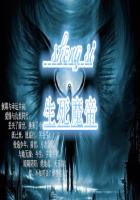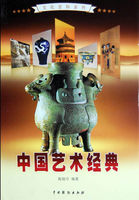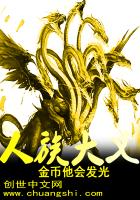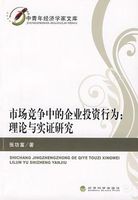How otherwise could for instance property have had a history at all, have taken on different forms, and landed property, for example, according to the different premises given, have proceeded in France from parcellation to centralisation in the hands of a few, in England from centralisation in the hands of a few to parcellation, as is actually the case today? Or how does it happen that trade, which after all is nothing more than the exchange of products of various individuals and countries, rules the whole world through the relation of supply and demand -- a relation which, as an English economist says, hovers over the earth like the fate of the ancients, and with invisible hand allots fortune and misfortune to men, sets up empires and overthrows empires, causes nations to rise and to disappear -- while with the abolition of the basis of private property, with the communistic regulation of production (and, implicit in this, the destruction of the alien relation between men and what they themselves produce), the power of the relation of supply and demand is dissolved into nothing, and men get exchange, production, the mode of their mutual relation, under their own control again?
In history up to the present it is certainly an empirical fact that separate individuals have, with the broadening of their activity into world-historical activity, become more and more enslaved under a power alien to them (a pressure which they have conceived of as a dirty trick on the part of the so-called universal spirit, etc.), a power which has become more and more enormous and, in the last instance, turns out to be the world market. But it is just as empirically established that, by the overthrow of the existing state of society by the communist revolution (of which more below) and the abolition of private property which is identical with it, this power, which so baffles the German theoreticians, will be dissolved; and that then the liberation of each single individual will be accomplished in the measure in which history becomes transformed into world history. From the above it is clear that the real intellectual wealth of the individual depends entirely on the wealth of his real connections. Only then will the separate individuals be liberated from the various national and local barriers, be brought into practical connection with the material and intellectual production of the whole world and be put in a position to acquire the capacity to enjoy this all-sided production of the whole earth (the creations of man). All-round dependence, this natural form of the world-historical co-operation of individuals, will be transformed by this communist revolution into the control and conscious mastery of these powers, which, born of the action of men on one another, have till now overawed and governed men as powers completely alien to them. Now this view can be expressed again in speculative-idealistic, i.e. fantastic, terms as "self-generation of the species" ("society as the subject"), and thereby the consecutive series of interrelated individuals connected with each other can be conceived as a single individual, which accomplishes the mystery of generating itself. It is clear here that individuals certainly make one another, physically and mentally, but do not make themselves.
This "alienation" (to use a term which will be comprehensible to the philosophers) can, of course, only be abolished given two practical premises.
For it to become an "intolerable" power, i.e. a power against which men make a revolution, it must necessarily have rendered the great mass of humanity "propertyless", and produced, at the same time, the contradiction of an existing world of wealth and culture, both of which conditions presuppose a great increase in productive power, a high degree of its development.
And, on the other hand, this development of productive forces (which itself implies the actual empirical existence of men in their world-historical, instead of local, being) is an absolutely necessary practical premise because without it want is merely made general, and with destitution the struggle for necessities and all the old filthy business would necessarily be reproduced; and furthermore, because only with this universal development of productive forces is a universal intercourse between men established, which produces in all nations simultaneously the phenomenon of the "propertyless" mass (universal competition), makes each nation dependent on the revolutions of the others, and finally has put world-historical, empirically universal individuals in place of local ones. Without this, (i) communism could only exist as a local event; (2) the forces of intercourse themselves could not have developed as universal, hence intolerable powers: they would have remained home-bred conditions surrounded by superstition; and (3) each extension of intercourse would abolish local communism. Empirically, communism is only possible as the act of the dominant peoples "all at once" and simultaneously, which presupposes the universal development of productive forces and the world intercourse bound up with communism. Moreover, the mass of propertyless workers -- the utterly precarious position of labour -- power on a mass scale cut off from capital or from even a limited satisfaction and, therefore, no longer merely temporarily deprived of work itself as a secure source of life -- presupposes the world market through competition. The proletariat can thus only exist world-historically , just as communism, its activity, can only have a "world-historical" existence. World-historical existence of individuals means existence of individuals which is directly linked up with world history.
Communism is for us not a state of affairs which is to be established, an ideal to which reality [will] have to adjust itself. We call communism the real movement which abolishes the present state of things. The conditions of this movement result from the premises now in existence.
On the other hind, too, the practical struggle of these particular interests, which constantly really run counter to the communal and illusory communal interests, makes practical intervention and control necessary through the illusory "general" interest in the form of the State.


